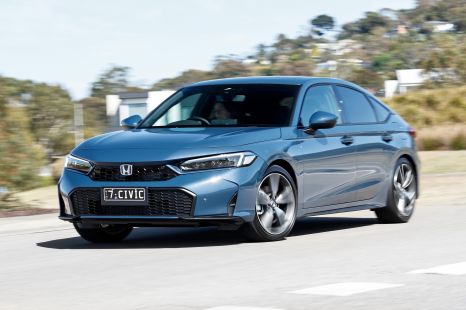

William Stopford
The cars Australians should buy more of in 2025
8 Months Ago
Lexus continues its range-wide overhaul of in-car tech, with the ES the latest recipient.
The 2023 Lexus ES gets overhauled infotainment and more accessible services via the Lexus Connected app.
The updated range goes on sale in September, priced from $62,140 before on-road costs.
Prices are up by $520 on ES250 models and $990 on ES300h models.
Quickly see how this car stacks up against its competition. Select any benchmark to see more details.
Where expert car reviews meet expert car buying – CarExpert gives you trusted advice, personalised service and real savings on your next new car.
| Configuration | Price From* |
|---|---|
| 2.5L, Automatic, 4-door Sedan, Petrol, FWD | $65,540 |
| 2.5L, 8-speed auto, 4-door Sedan, Petrol, FWD | $62,140 |
| Configuration | Price From* |
|---|---|
| 2.5L, Automatic, 4-door Sedan, Petrol, FWD | $73,800 |
| 2.5L, 8-speed auto, 4-door Sedan, Petrol, FWD | $63,640 |
| Configuration | Price From* |
|---|---|
| 2.5L, Automatic, 4-door Sedan, Petrol, FWD | $74,920 |
| 2.5L, 8-speed auto, 4-door Sedan, Petrol, FWD | $71,380 |
| Configuration | Price From* |
|---|---|
| 2.5L, Automatic, 4-door Sedan, Petrol, FWD | $78,520 |
| Configuration | Price From* |
|---|---|
| 2.5L, Automatic, 4-door Sedan, Petrol, FWD | $80,170 |
Where expert car reviews meet expert car buying – CarExpert gives you trusted advice, personalised service and real savings on your next new car.
Total luggage space is 473L.
Where expert car reviews meet expert car buying – CarExpert gives you trusted advice, personalised service and real savings on your next new car.
CarExpert High Resolution Photos of the Lexus ES
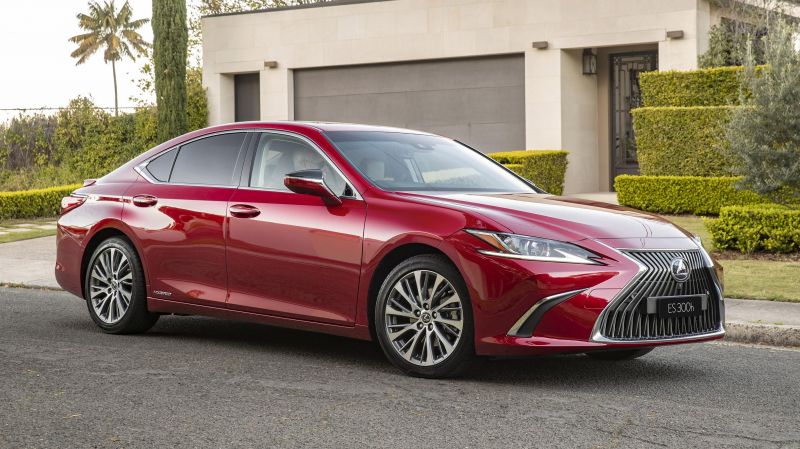
A very classy looking sedan that has stood the test of time in its simplicity.
Lexus has produced some naff wood trim over the years, but this walnut trim is elegant and adds some warmth to the high-quality cabin. Almost every surface, including the glove compartment lid, is covered in either soft-touch plastic, leatherette or leather. The exceptions are the lower reaches of the doors.
Instead of using piano black on the centre console, Lexus has used some dark brushed metal trim which is less likely to attract scratches and smudges.
The “little LS” aesthetic carries through to the cabin with a similar asymmetric dashboard design to the flagship sedan, which some may find a bit fussy. It includes a tablet-style touchscreen infotainment system with an old-school analogue clock next to it, an unusual juxtaposition of old and new.
Not that the infotainment system is particularly new. While it now has touch functionality, at least in most Lexus models, the brand’s system is showing its age.
Its user interface doesn’t look significantly different from Toyota’s due to its similar palette of washed-out blues, though there are different elements like a pop-up menu footer. The navigation graphics also lack the crispness of rival luxury brands’ systems.
The front seats are plush and comfortable, and we appreciate the adjustable thigh support. That makes a big difference on long trips, as does the seat ventilation in Queensland’s often muggy climes.
A thin strip of blue ambient lighting runs along the doors and under the wood inlays on the dash. It’s a subtle yet elegant touch, and it carries through to the rear of the cabin.
Likewise, the soft-touch materials and supple leather upholstery that make the front of the cabin so delightful are abundant in the back.
There’s ample legroom in the rear for someone 180cm tall sitting behind someone of the same height. Headroom is also plentiful, unless you sit on the slightly raised centre seat. There, my head was touching the roof, while legroom was limited somewhat by the presence of a hump on the floor.
The Lexus ES is equipped with a 12.3-inch infotainment screen with touch capability, as well as Lexus Connected Services.
The infotainment system gains wireless Apple CarPlay, though you’ll still need to plug in to use Android Auto.
There’s cloud-based navigation with live traffic, weather, parking and map updates and first- and last-mile routing, syncing with the Lexus Connected app.
These are in addition to the existing SOS emergency call, stolen vehicle tracking, and automatic collision notification functions.
You can use the app to remotely lock, unlock or start the ES or sound its horn, while you can also use it to view vehicle information like the odometer, fuel level, location, tyre pressures, and recent trip details.
You can also remotely check whether you left the doors, windows, boot or bonnet open.
Removing the trackpad frees up space on the centre console for the wireless phone charger, which is now standard across the range.
Previously, this was found in the centre console bin, and opting for an ES so equipped meant you missed out on a pair of USB-C outlets.
These are now on all ES models, while there’s also a USB-C port near the shifter.
The Lexus ES wears a five-star ANCAP safety rating based on testing carried out in 2018.
It scored 91 per cent for adult occupant protection, 86 per cent for child occupants, an impressive 90 per cent for vulnerable road users and 76 per cent for safety assist.
Dual frontal airbags, driver and passenger knee airbags, front and rear chest-protecting side airbags and head-protecting side airbags (curtains) are standard equipment.
The 2022 ES debuted a new turning assist system, which will apply the brakes if you’re about to cause an accident by turning across traffic, and a steering assist system.
Standard safety equipment also includes:
The 2023 Lexus ES250 uses 6.6L/100km on the combined cycle, while the ES300h uses 4.8L/100km.
| Lexus ES | Fuel Type | Combined |
|---|---|---|
| 2.5L, Automatic, 4-door Sedan, Petrol, FWD | Premium Unleaded | 4.8 L/100km |
| 2.5L, 8-speed auto, 4-door Sedan, Petrol, FWD | Premium Unleaded | 6.6 L/100km |
What are the running and servicing costs of a Lexus ES?
Each service is currently capped at $495.
Our expert take on Lexus ES drivability.
The Lexus ES300h is powered by a 2.5-litre hybrid system, with a combined power output of 160kW.
It blends power from a 2.5-litre four-cylinder petrol engine with 221Nm of torque and an electric motor with 202Nm of torque, but Lexus doesn’t quote a combined torque figure.
Drive is sent to the front wheels through an e-CVT automatic transmission.
The Lexus ES250 draws is powered by a 2.5-litre naturally-aspirated four-cylinder petrol engine shared with the Toyota RAV4 and Camry and Lexus NX250.
It develops 152kW of power and 243Nm of torque, sent to the front wheels through an eight-speed automatic transmission.
What colours are available for the Lexus ES
The ES is available in the following colours:
The Lexus ES is backed by a five-year, unlimited-kilometre warranty.
Lexus also offers three years or 45,000km of capped-price servicing, which includes service loan cars and 24-hour roadside assistance.
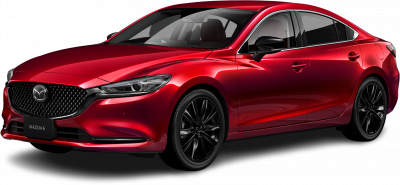
Mazda 6
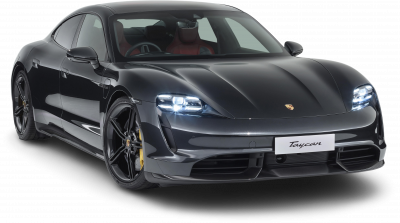
Taycan
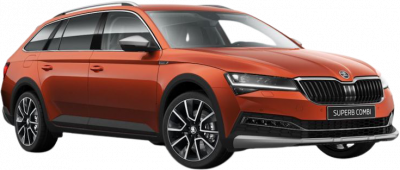
Superb
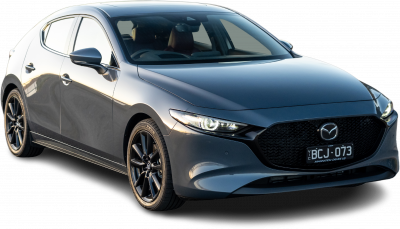
Mazda 3
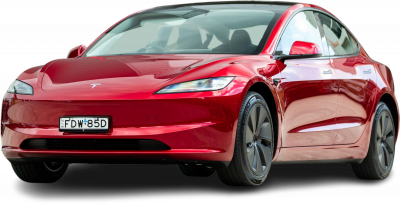
Model 3
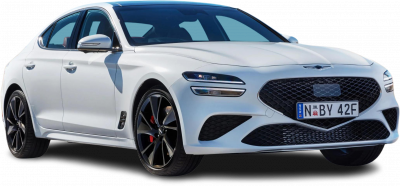
G70
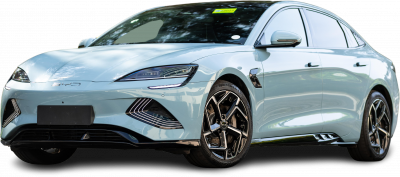
Seal

i30
Can’t see the car you’re considering?
Is this the right car for you? Out experts buy or not guide.
If you want a hybrid luxury sedan with a premium badge for under $80,000, you don’t have any other option.
Fortunately, the ES300h makes a compelling case for itself beyond being simply the only vehicle of its type at its price point. It’s as well-appointed, comfortable and economical as you would expect of a hybrid luxury sedan at this price point.
While it isn’t a sport sedan in the vein of the defunct IS, it handles surprisingly well for a large, plush, front-wheel drive sedan. And it’ll appeal to loyal Lexus buyers with its impressive mechanical refinement and high quality feel.
A little bit of extra power and steering feel wouldn’t go amiss, and even with touchscreen functionality the infotainment system disappoints. But for the ES300h’s intended mission, it performs admirably.
Where expert car reviews meet expert car buying – CarExpert gives you trusted advice, personalised service and real savings on your next new car.
The cheapest Lexus ES is the Luxury that starts from $62,140.
The most expensive Lexus ES is the Sports Luxury that starts from $80,170.
The best towing capacity of a Lexus ES is null kg offered by the following variants: Luxury, Luxury Enhancement Pack, F Sport, F Sport Enhancement Pack and Sports Luxury.
The largest Lexus ES is the Luxury which measures 1865mm wide, 4975mm in length and sits 1445mm tall.
The most powerful Lexus ES is the Luxury which has 160kW of power from its 2.5L GASOLINE DIRECT INJECTION & MULTI-POINT engine.
The Lexus ES is built in Japan and shipped to Australia.
The heaviest Lexus ES is the Luxury which weighs 2150 kg (kerb weight).
The Lexus ES uses premium unleaded.